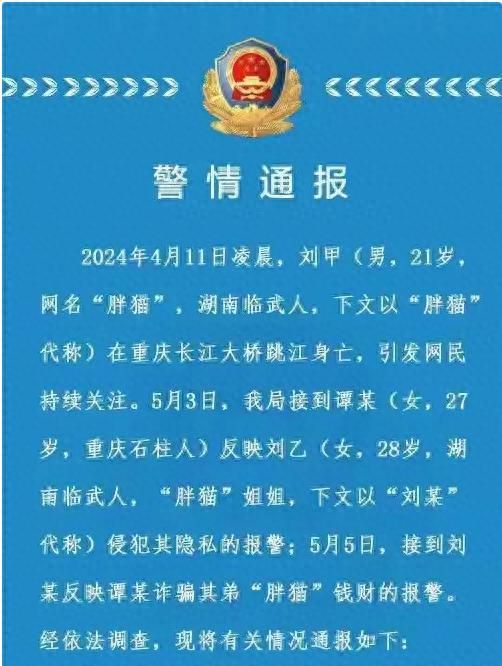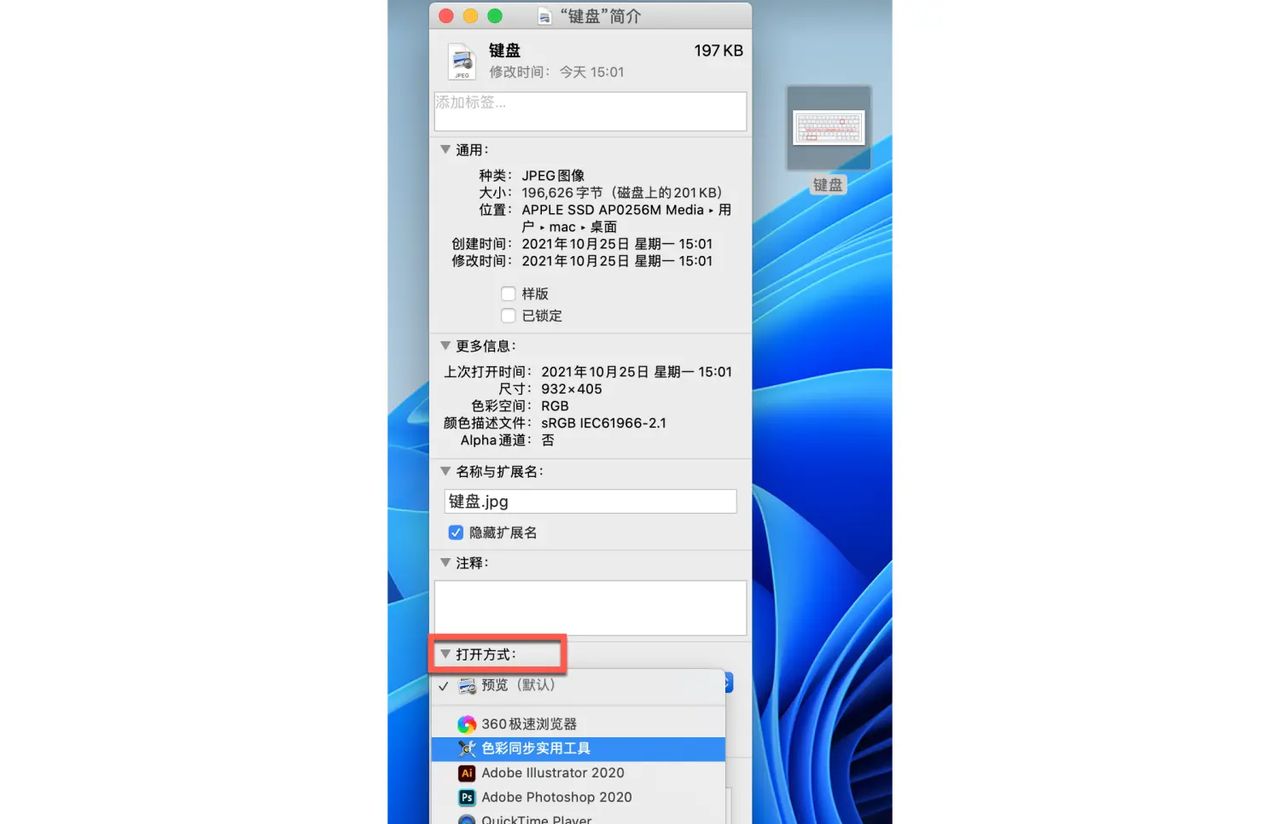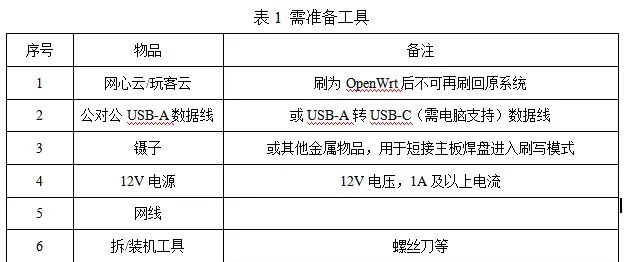前言:
什么是Ingress?
官方的解释是:
Ingress 是对集群中服务的外部访问进行管理的 API 对象,典型的访问方式是 HTTP。
Ingress 可以提供负载均衡、SSL 终结和基于名称的虚拟托管。
-
Ingress简介
Ingress对象,实则就是对“反向代理”的一种抽象,简单的说就是一个全局的负载均衡器,可以通过访问URL定位到后端的Service
有了Ingress这个抽象,K8S就不需要关心Ingress的细节了,实际使用时,只需要选择一个具体的Ingress Controller部署就行了,业界常用的反向代理项目有:Nginx、HAProxy、Envoy、Traefik 都已经成为了K8S专门维护的Ingress Controller
一个Ingress对象的主要内容,就类似Nginx的配置文件描述,对应的转发规则就是ingressRule,
有了Ingress这个对象,用户就可以根据自己的需求选择Ingress Controller,例如,如果应用对代理服务的中断超级敏感,可以使用Treafik这样的Ingress Controller
Ingress工作在七层,Service工作在四层,当想要在Kubernetes里为应用进行TLS配置等HTTPS相关操作时,都必须通过Ingress来进行
-
ingress-nginx 简单的理解就是你原来需要改 Nginx 配置,然后配置各种域名对应哪个 Service,目前把这个动作抽象出来,变成一个 Ingress 对象,你可以用 yaml 创建,每次不要去改 Nginx 了,直接改 yaml 然后创建/更新就行了;那么问题来了:”Nginx 该怎么处理?”
-
Ingress Controller 这东西就是解决 “Nginx 的处理方式” 的;Ingress Controoler 通过与 Kubernetes API 交互,动态的去感知集群中 Ingress 规则变化,然后读取他,按照他自己模板生成一段 Nginx 配置,再写到 Nginx Pod 里,最后 reload 一下,工作流程如下图:

-
实际上Ingress也是Kubernetes API的标准资源类型之一,它实则就是一组基于DNS名称(host)或URL路径把请求转发到指定的Service资源的规则。用于将集群外部的请求流量转发到集群内部完成的服务发布。我们需要清楚的是,Ingress资源自身不能进行“流量穿透”,仅仅是一组规则的集合,这些集合规则还需要其他功能的辅助,列如监听某套接字,然后根据这些规则的匹配进行路由转发,这些能够为Ingress资源监听套接字并将流量转发的组件就是Ingress Controller
-
Ingress 两种路由方式
1.虚拟主机
2.URL 路径
Ingree-nginx部署
- ingress-nginx 许多全局配置或修改默认配置都是通过annotations 注释来加载配置文件具体参数详细解释可
参考官方文档:
https://kubernetes.github.io/ingress-nginx/user-guide/nginx-configuration/annotations/
- 选择NodePort部署方式
https://kubernetes.github.io/ingress-nginx/deploy/
- extensions/v1beta1 Ingress资源规范 1.22+版本后会被彻底弃用
apiVersion: extensions/v1betal #资源所属的API群组和版本
Kind: Ingress#资源类型标识符
metadata: #元数据
name <string> #资源名称
annotationsl #资源注解,v1betal使用下面的注解来指定要解析该资源的控制器类型
kubernetes.io/ingress.class: <string> #适配的Ingress控制器类别
namespace <string> #名称空间
spec:
rules <[]Object> #Ingress规则列表;
- host <string> #虚拟主机的FQDN,支持“*"前缀通配,不支持IP,不支持指定端口
http <object>
paths<[]0bject>#虚拟主机PATH定义的列表,由path和backend组成
- path <string> #流量匹配的HTTP PATH,必须以/开头
pathType <string> #匹配机制,支持Exact、_Prefix和ImplementationSpecific
backend <object> #匹配到的流量转发到的目标后端
resource <Object> #引用的同一名称空间下的资源,与下面两个字段互斥
serviceName <string>#引用的Service资源的名称
servicePort <string># Service用于提供服务的端口
tls <[]object> #TLS配置,用于指定上rules中定义的哪些host需要工作HTTPS模式
- hosts <[]string> #使用同一组证书的主机名称列表
secretName <string> #保存于数字证书和私钥信息的secret资源名称
backend <object> #默认backend的定义,可嵌套字段及使用格式跟rules字段中的一样
ingressClassName <string> #ingress类名称,用于指定适配的控制器
- v1 Ingress资源规范
apiVersion: networking.k8s.io/v1 #资源所属的API群组和版本
kind: Ingress #资源类型标识符
metadata: #元数据
name <string> #资源名称
annotations: #资源注解,vlbetal使用下面的注解来指定要解析该资源的控制器类型
kubernetes.io/ingress.class:<string> #适配的Ingress控制器类别
namespace <string> #名称空间
spec:
rules <[]object> #Ingress规则列表
- host <string> #虚拟主机的FQDN,支持“*"前缀通配,不支持IP,不支持指定端口
http <object>
paths <[]object>#虚拟主机PATH定义的列表,由path和backend组成
- path <string> #流量匹配的HTTP PATH,必须以/开头
pathType <string> #支持Exact、Prefix和ImplementationSpecific,必选
backend <Object>#匹配到的流量转发到的目标后端
resource <object> #引用的同一名称空间下的资源,与下面两个字段互斥
service <object> #关联的后端Service对象
name <string> #后端Service的名称
port bject> #后端Service上的端口对象
name <string> #端口名称
number <integer> #端口号
tls <[]object> #TLS配置,用于指定上rules中定义的哪些host需要工作HTTPS模式
- hosts <[]string> #使用同一组证书的主机名称列表
secretName <string> #保存于数字证书和私钥信息的secret资源名称
backend <object> #默认backend的定义,可嵌套字段及使用格式跟rules字段中的一样
ingressClassName <string> #ingress类名称,用于指定适配的控制器
- 添加externalIPs:节点3 IP非必须步骤,方便记忆使用 而不是记忆NodePort端口 NodePort与externalIPs可同时访问
[root@k8s-master Ingress]# vim deploy.yaml
...
---
# Source: ingress-nginx/templates/controller-service.yaml
apiVersion: v1
kind: Service
metadata:
annotations:
labels:
helm.sh/chart: ingress-nginx-4.0.1
app.kubernetes.io/name: ingress-nginx
app.kubernetes.io/instance: ingress-nginx
app.kubernetes.io/version: 1.0.0
app.kubernetes.io/managed-by: Helm
app.kubernetes.io/component: controller
name: ingress-nginx-controller
namespace: ingress-nginx
spec:
type: NodePort
externalIPs: [192.168.54.173] #添加externalIPs字段 固定访问IP
ports:
- name: http
port: 80
protocol: TCP
targetPort: http
appProtocol: http
- name: https
port: 443
protocol: TCP
targetPort: https
appProtocol: https
selector:
app.kubernetes.io/name: ingress-nginx
app.kubernetes.io/instance: ingress-nginx
app.kubernetes.io/component: controller
...
- 部署Ingress-nginx
[root@k8s-master Ingress]# kubectl apply -f deploy.yaml
namespace/ingress-nginx unchanged
serviceaccount/ingress-nginx unchanged
configmap/ingress-nginx-controller configured
clusterrole.rbac.authorization.k8s.io/ingress-nginx unchanged
clusterrolebinding.rbac.authorization.k8s.io/ingress-nginx unchanged
role.rbac.authorization.k8s.io/ingress-nginx unchanged
rolebinding.rbac.authorization.k8s.io/ingress-nginx unchanged
service/ingress-nginx-controller-admission unchanged
service/ingress-nginx-controller configured
deployment.apps/ingress-nginx-controller configured
ingressclass.networking.k8s.io/nginx unchanged
validatingwebhookconfiguration.admissionregistration.k8s.io/ingress-nginx-admission configured
serviceaccount/ingress-nginx-admission unchanged
clusterrole.rbac.authorization.k8s.io/ingress-nginx-admission unchanged
clusterrolebinding.rbac.authorization.k8s.io/ingress-nginx-admission unchanged
role.rbac.authorization.k8s.io/ingress-nginx-admission unchanged
rolebinding.rbac.authorization.k8s.io/ingress-nginx-admission unchanged
job.batch/ingress-nginx-admission-create unchanged
job.batch/ingress-nginx-admission-patch unchanged
[root@k8s-master Ingress]# kubectl get pod
NAME READY STATUS RESTARTS AGE
etcd-operator-646cbffdb6-brbn6 1/1 Running 0 19h
example-etcd-cluster-5fb5d9d6n8 1/1 Running 0 49m
example-etcd-cluster-nc8pdgjrjr 1/1 Running 0 19h
example-etcd-cluster-svgdngq28k 1/1 Running 0 48m
[root@k8s-master Ingress]# kubectl get svc -n ingress-nginx
NAME TYPE CLUSTER-IP EXTERNAL-IP PORT(S) AGE
ingress-nginx-controller NodePort 10.109.24.78 192.168.54.173 80:32493/TCP,443:30239/TCP 120m
ingress-nginx-controller-admission ClusterIP 10.110.72.52 <none> 443/TCP 120m
示例1:创建 Ingress-nginx虚拟主机
- 创建 Deployment 和与之对应的SVC
[root@k8s-master Ingress]# cat deployment-demo.yaml
apiVersion: apps/v1
kind: Deployment
metadata:
name: deployment-demo
namespace: default
spec:
replicas: 4
selector:
matchLabels:
app: demoapp
release: stable
template:
metadata:
labels :
app: demoapp
release: stable
spec:
containers:
- name: demoapp
image: ikubernetes/demoapp:v1.1
ports:
- containerPort: 80
name: http
---
apiVersion: v1
kind: Service
metadata:
name: demoapp-deploy
namespace: default
spec:
selector:
app: demoapp
release: stable
ports:
- name: http
port: 80
targetPort: 80
- 创建 ingress-nginx
[root@k8s-master Ingress]# cat demoapp-ingress.yaml
apiVersion: networking.k8s.io/v1
kind: Ingress
metadata:
name: ingress-demo
annotations:
kubernetes.io/ingress.class: "nginx"
namespace: default
spec:
rules:
- host: www.ik8s.io #虚拟主机
http:
paths:
- path: /
pathType: Prefix #前缀匹配
backend:
service:
name: demoapp-deploy
port:
number: 80
[root@k8s-master Ingress]# kubectl apply -f deployment-demo.yaml
[root@k8s-master Ingress]# kubectl apply -f demoapp-ingress.yaml
[root@k8s-master Ingress]# kubectl get svc -n ingress-nginx
NAME TYPE CLUSTER-IP EXTERNAL-IP PORT(S) AGE
ingress-nginx-controller NodePort 10.109.24.78 192.168.54.173 80:32493/TCP,443:30239/TCP 5h50m
ingress-nginx-controller-admission ClusterIP 10.110.72.52 <none> 443/TCP 5h50m
[root@k8s-master Ingress]# kubectl get ingress
Warning: extensions/v1beta1 Ingress is deprecated in v1.14+, unavailable in v1.22+; use networking.k8s.io/v1 Ingress
NAME CLASS HOSTS ADDRESS PORTS AGE
ingress-demo <none> www.ik8s.io 192.168.4.171 80 3h11m
- 访问测试
[root@bigyong ~]# cat /etc/hosts
# ::1 localhost localhost.localdomain localhost6 localhost6.localdomain6
127.0.0.1 localhost localhost.localdomain localhost4 localhost4.localdomain4
...
192.168.54.173 www.ik8s.io #写hosts
[root@bigyong ~]# curl 192.168.54.173 #直接访问只能到ingress-nginx 没到转发到后端
<html>
<head><title>404 Not Found</title></head>
<body>
<center><h1>404 Not Found</h1></center>
<hr><center>nginx</center>
</body>
</html>
[root@bigyong ~]# curl -H "Host:www.ik8s.io" 192.168.54.173 #访问成功
iKubernetes demoapp v1.1 !! ClientIP: 192.168.113.37, ServerName: deployment-demo-867c7d9d55-gw6qp, ServerIP: 192.168.113.39
[root@bigyong ~]# curl -H "Host:www.ik8s.io" 192.168.54.173
iKubernetes demoapp v1.1 !! ClientIP: 192.168.113.37, ServerName: deployment-demo-867c7d9d55-9lnpq, ServerIP: 192.168.12.39!
[root@bigyong ~]# curl -H "Host:www.ik8s.io" 192.168.54.173
iKubernetes demoapp v1.1 !! ClientIP: 192.168.113.37, ServerName: deployment-demo-867c7d9d55-2zcr5, ServerIP: 192.168.51.61!
[root@bigyong ~]# curl -H "Host:www.ik8s.io" 192.168.54.173
iKubernetes demoapp v1.1 !! ClientIP: 192.168.113.37, ServerName: deployment-demo-867c7d9d55-9lnpq, ServerIP: 192.168.12.39!
示例2: 创建TLS Ingress HTTPS
[root@k8s-master Ingress]# cat demoapp-ingress.yaml
apiVersion: networking.k8s.io/v1
kind: Ingress
metadata:
name: ingress-demo
annotations:
kubernetes.io/ingress.class: "nginx"
namespace: default
spec:
rules:
- host: www.ik8s.io
http:
paths:
- path: /
pathType: Prefix #前缀匹配
backend:
service:
name: demoapp-deploy
port:
number: 80
tls: #添加tls
- hosts:
- www.ik8s.io
secretName: ik8s-tls
[root@k8s-master Ingress]# kubectl apply -f demoapp-ingress.yaml
ingress.networking.k8s.io/ingress-demo configured
[root@k8s-master Ingress]# kubectl describe ingress ingress-demo
Warning: extensions/v1beta1 Ingress is deprecated in v1.14+, unavailable in v1.22+; use networking.k8s.io/v1 Ingress
Name: ingress-demo
Namespace: default
Address: 192.168.4.171
Default backend: default-http-backend:80 (<error: endpoints "default-http-backend" not found>)
TLS:
ik8s-tls terminates www.ik8s.io
Rules:
Host Path Backends
---- ---- --------
www.ik8s.io
/ demoapp-deploy:80 (192.168.113.39:80,192.168.12.39:80)
Annotations: kubernetes.io/ingress.class: nginx
Events:
Type Reason Age From Message
---- ------ ---- ---- -------
Normal Sync 113s (x3 over 6h36m) nginx-ingress-controller Scheduled for sync
- 创建tls自签证书
[root@k8s-master Ingress]# (umask 077); openssl genrsa -out tls.key 2048
Generating RSA private key, 2048 bit long modulus
............................+++
.......................+++
e is 65537 (0x10001)
[root@k8s-master Ingress]# openssl req -new -x509 -key tls.key -out tls.crt -subj "/CN=www.ik8s.io" -days 365
[root@k8s-master Ingress]# ls
demoapp-ingress.yaml deployment-demo.yaml tls.crt
deploy-externalIP.yaml deploy.yaml tls.key
- 创建Secret
[root@k8s-master Ingress]# kubectl create secret tls ik8s-tls --cert=./tls.crt --key=./tls.key
secret/ik8s-tls created
- 访问测试
[root@k8s-master Ingress]# curl -H "Host:www.ik8s.io" 192.168.54.173 #308已经被重定向
<html>
<head><title>308 Permanent Redirect</title></head>
<body>
<center><h1>308 Permanent Redirect</h1></center>
<hr><center>nginx</center>
</body>
</html>
#通过https访问 提示证书无效不被信任
[root@k8s-master Ingress]# curl -H "Host:www.ik8s.io" https://192.168.54.173
curl: (60) Issuer certificate is invalid.
More details here: http://curl.haxx.se/docs/sslcerts.html
curl performs SSL certificate verification by default, using a "bundle"
of Certificate Authority (CA) public keys (CA certs). If the default
bundle file isn t adequate, you can specify an alternate file
using the --cacert option.
If this HTTPS server uses a certificate signed by a CA represented in
the bundle, the certificate verification probably failed due to a
problem with the certificate (it might be expired, or the name might
not match the domain name in the URL).
If you d like to turn off curl s verification of the certificate, use
the -k (or --insecure) option.
- 忽略风险 访问成功
[root@k8s-master Ingress]# curl -k -H "Host:www.ik8s.io" https://192.168.54.173
iKubernetes demoapp v1.1 !! ClientIP: 192.168.113.37, ServerName: deployment-demo-867c7d9d55-9lnpq, ServerIP: 192.168.12.39!
示例3:为dashboard 添加ingress
https://kubernetes.github.io/ingress-nginx/user-guide/nginx-configuration/annotations/
[root@k8s-master Ingress]# cat ingress-kubernetes-dashboard.yaml
apiVersion: extensions/v1beta1
kind: Ingress
metadata:
name: dashboard
annotations:
kubernetes.io/ingress.class: "nginx" #指定控制器
ingress.kubernetes.io/ssl-passthrough: "true" #tcp代理 由于后端dashboard必须通过https访问 这里通过4层转发直接转发到后端Pod
nginx.ingress.kubernetes.io/backend-protocol: "HTTPS" #后端直接通过https协议访问
nginx.ingress.kubernetes.io/rewrite-target: /$2 #重写标记 path:/dashboard(/|$)(.*) 这里的第2部分
namespace: kubernetes-dashboard
spec: #这里没有配置host 相当于*号通配所有主机
rules:
- http:
paths:
- path: /dashboard(/|$)(.*)
backend:
serviceName: kubernetes-dashboard
servicePort: 443
[root@k8s-master Ingress]# kubectl apply -f ingress-kubernetes-dashboard.yaml
Warning: extensions/v1beta1 Ingress is deprecated in v1.14+, unavailable in v1.22+; use networking.k8s.io/v1 Ingress
ingress.extensions/dashboard created
[root@k8s-master Ingress]# kubectl describe ingress dashboard -n kubernetes-dashboard
Warning: extensions/v1beta1 Ingress is deprecated in v1.14+, unavailable in v1.22+; use networking.k8s.io/v1 Ingress
Name: dashboard
Namespace: kubernetes-dashboard
Address: 192.168.4.171
Default backend: default-http-backend:80 (<error: endpoints "default-http-backend" not found>)
Rules:
Host Path Backends
---- ---- --------
*
/dashboard(/|$)(.*) kubernetes-dashboard:443 (192.168.51.64:8443) #后端pod
Annotations: ingress.kubernetes.io/ssl-passthrough: true
kubernetes.io/ingress.class: nginx
nginx.ingress.kubernetes.io/backend-protocol: HTTPS
nginx.ingress.kubernetes.io/rewrite-target: /$2
Events:
Type Reason Age From Message
---- ------ ---- ---- -------
Normal Sync 103s (x2 over 2m41s) nginx-ingress-controller Scheduled for sync
- 访问测试
注意:https://192.168.54.173/dashboard/ 必定要带上最后的/ $2为/后面部分 不然无法访问

示例4:longhorn添加ingress-nginx basic认证
参考官方文档
https://longhorn.io/docs/1.2.0/deploy/accessing-the-ui/longhorn-ingress/
- 默认longhorn没有登录认证暴露到公网会存在风险 第一添加basic认证
[root@k8s-master Ingress]# kubectl get pod -n longhorn-system
NAME READY STATUS RESTARTS AGE
....
longhorn-manager-cc8sp 1/1 Running 0 149m
longhorn-manager-fs5tx 1/1 Running 2 149m
longhorn-manager-vwbzn 1/1 Running 1 149m
longhorn-ui-79f8976fbf-c44ct 1/1 Running 1 149m
[root@k8s-master Ingress]# kubectl get svc -n longhorn-system
NAME TYPE CLUSTER-IP EXTERNAL-IP PORT(S) AGE
csi-attacher ClusterIP 10.108.190.205 <none> 12345/TCP 142m
csi-provisioner ClusterIP 10.99.216.181 <none> 12345/TCP 142m
csi-resizer ClusterIP 10.96.161.192 <none> 12345/TCP 141m
csi-snapshotter ClusterIP 10.101.216.72 <none> 12345/TCP 141m
longhorn-backend ClusterIP 10.108.67.31 <none> 9500/TCP 149m
longhorn-frontend ClusterIP 10.107.71.176 <none> 80/TCP 149m
[root@k8s-master Ingress]# USER=user.com; PASSWORD=passwd.com; echo "${USER}:$(openssl passwd -stdin -apr1 <<< ${PASSWORD})" >> auth
[root@k8s-master Ingress]# ls
auth deploy-externalIP.yaml deploy.yaml tls.crt
demoapp-ingress.yaml deployment-demo.yaml ingress-kubernetes-dashboard.yaml tls.key
[root@k8s-master Ingress]# kubectl -n longhorn-system create secret generic basic-auth --from-file=authsecret/basic-auth created
[root@k8s-master Ingress]# cat longhorn-ui-ingress.yaml
apiVersion: networking.k8s.io/v1
kind: Ingress
metadata:
name: longhorn-ingress
namespace: longhorn-system
annotations:
kubernetes.io/ingress.class: "nginx" #指定控制器
# type of authentication
nginx.ingress.kubernetes.io/auth-type: basic #认证类型
# prevent the controller from redirecting (308) to HTTPS
nginx.ingress.kubernetes.io/ssl-redirect: false #http通信
# name of the secret that contains the user/password definitions
nginx.ingress.kubernetes.io/auth-secret: basic-auth #secret名称
# message to display with an appropriate context why the authentication is required
nginx.ingress.kubernetes.io/auth-realm: Authentication Required #输入提示
# custom max body size for file uploading like backing image uploading
nginx.ingress.kubernetes.io/proxy-body-size: 10000m
nginx.ingress.kubernetes.io/rewrite-target: /$2
spec:
rules:
- http:
paths:
- pathType: Prefix
path: /longhorn(/|$)(.*)
backend:
service:
name: longhorn-frontend
port:
number: 80
[root@k8s-master Ingress]# kubectl apply -f longhorn-ui-ingress.yaml
ingress.networking.k8s.io/longhorn-ingress configured
-
访问 http://IP/longhorn/ #最后的 “/” 必定要加
-
以下图片IP 重新部署后的服务IP






















暂无评论内容